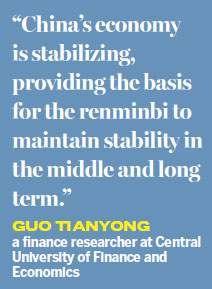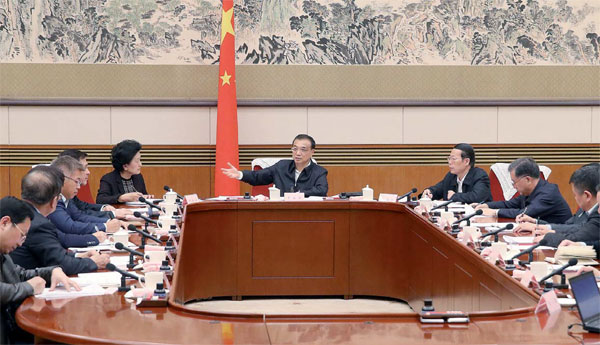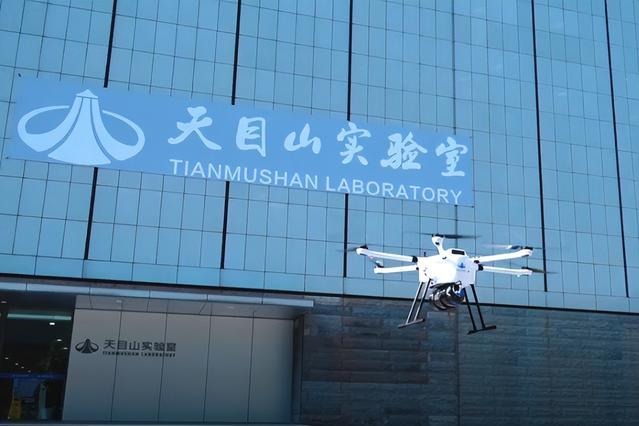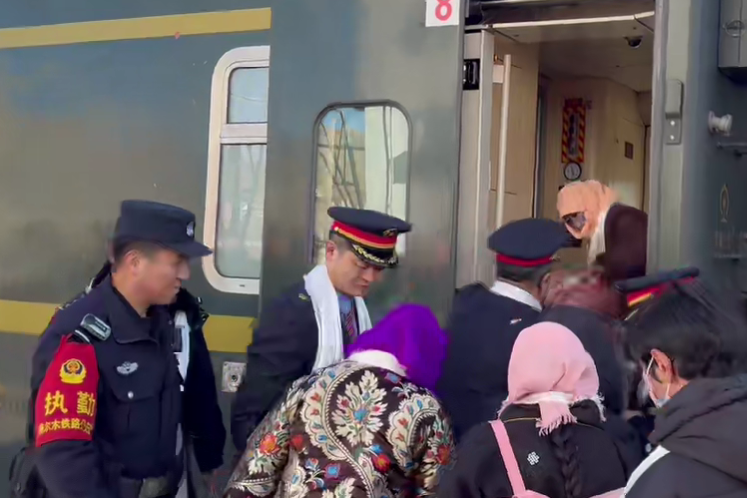Premier: Stability is our top priority

Job market key as economy gains power to support growth
Stability, especially in the job market, is the economic priority of the Chinese government despite uncertainties overseas, Premier Li Keqiang said during a seminar to solicit ideas on improving economic development and living standards.
Li said stability would be emphasized through the remainder of the year and the beginning of the next, according to a statement released on Nov 15.
He called for steady growth and acceleration of reforms during the first high-level meeting on the economic situation after the United States presidential election. The seminar, which was held Nov 14 in Beijing, was attended by academics, researchers, business executives and other experts.
| Premier Li Keqiang speaks during a seminar to solicit ideas on improving economic development and living standards in Beijing on Nov 14. Yao Dawei / Xinhua |
Though faced with rising complexities around the world, China's transition from its old structure to a new development model is releasing new power to help maintain economic balance and growth, Li said.
Starting now and continuing into next year, the government's priority is to give strong support to the people's employment and livelihoods, he said.
Prudent monetary policy and proactive fiscal policy will be carried out next year to supply reasonably adequate liquidity and boost investment, he said, adding that there will be stronger measures to boost the real economy and innovation, given rising uncertainty in the global economy and discrepancies among different regions and industries in domestic growth.
He noted the recent shopping extravaganza on Nov 11, Singles Day - when Chinese buyers made online purchases of more than 100 billion yuan ($14.66 billion; 13.7 billion euros; 11.8 billion) in a single day - as a good example of vitality in the real economy.
This year has seen Britain voting to exit the European Union, and next year likely will bring new and unforeseeable policies from US President-elect Donald Trump. Both are regarded by economists as possible sources of pressure on China's exports and economy.

Trump's victory, especially, has provoked questions, as reflected in turmoil in commodities futures markets over the weekend, says Huang Qunhui, director of the Institute of Industrial Economics at the Chinese Academy of Social Sciences. It is important for China to maintain the stability of its economy to ensure employment and social welfare, he says.
Meanwhile, the US Federal Reserve likely will move again to raise interest rates, which will place pressure on emerging economies including China. The renminbi fell to a six-year low against the US dollar recently.
Guo Tianyong, a finance researcher at Central University of Finance and Economics, says Trump will probably loosen regulations on US banks, which could accelerate the appreciation of the dollar. "But China's economy is stabilizing, providing the basis for the renminbi to maintain stability in the middle and long term," Guo says.
At the seminar, Li listened to suggestions made by representatives of banks, universities, manufacturers and hospitals, who spoke of the current situation and prospects in their own fields. They indicated that China's economy is stabilizing, with many indicators better than expected, providing a basis for confidence.
For decades, the country's economy has been driven by investment, exports and consumption. Exports are declining and private investment is growing more slowly.
The central government should maintain the continuity of current macroeconomic policies, particularly monetary and fiscal policies, to cultivate growth within a reasonable range, Guo said.
Li also called on governmental departments to closely track changing situations to stabilize economic growth, deepen reforms, boost restructuring and prevent risks, which will improve housing, medical care and other social welfare indicators.
huyongqi@chinadaily.com.cn
(China Daily Africa Weekly 11/18/2016 page28)
Today's Top News
- Evidence mounts of Japan's wartime atrocities
- Gunmen kill 11, wound many on Sydney beach
- Study finds Earth's deep water reservoirs
- China remembers victims of Nanjing Massacre 88 years on
- Philippines' provocations will avail it nothing: China Daily editorial
- China steps up financial support to spur consumption































